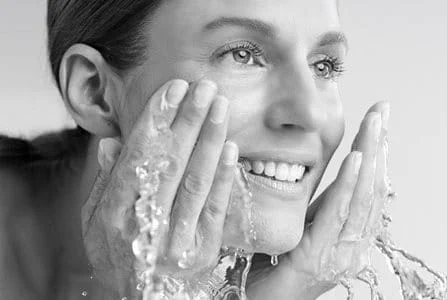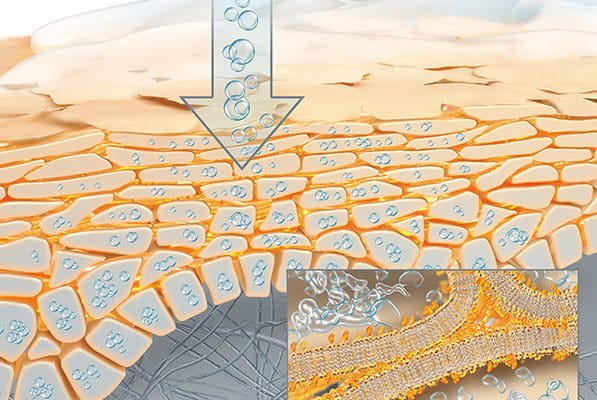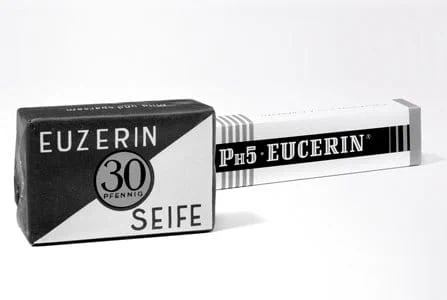What does Micellar mean?
Micelles are microscopic, spherical aggregates of surfactant molecules. Each surfactant molecule has a hydrophilic (water-loving) head that is attracted to water molecules and a hydrophobic (water-hating) tail that repels water and simultaneously attaches itself to the oil and grease in dirt. These opposing forces loosen dirt and suspend it in the water which is wiped away on the cotton pad. Micellar cleansers are used without water and are especially suitable for sensitive skin.
What does the 3 in 1 stand for?
Eucerin DermatoCLEAN [HYALURON] Micellar Water 3 in 1 is a quick and convenient cleansing solution that provides three benefits in one product:
- 1 = cleanse
- 2 = remove make-up
- 3 = moisturize
Is it safe to use Eucerin DermatoCLEAN [HYALURON] Micellar Water 3 in 1 to remove eye make-up?
Yes. It has been clinically and opthalmologically tested and proven to be compatible with eyes and with sensitive skin.
The eye contour area is particularly delicate and sensitive, with a different pH level to facial skin. Eucerin DermatoCLEAN Micellar Water 3 in 1 respects this difference and has been formulated to pH 7.4 – the optimum pH for the eye area.
Eucerin DermatoCLEAN Micellar Water 3 in 1 will remove all water soluble eye make-up. It will not remove water resistant make-up such as waterproof mascara. For the effective removal of waterproof make-up, we recommend Eucerin DermatoCLEAN Micellar Eye Make-up Remover.
What is the best facial cleanser for my skin?
Firstly, choose a cleanser that’s suitable for your skin type and condition and is proven to cleanse effectively but gently. Secondly, choose a product you’ll enjoy using – we all have different textural preferences and different ways we like to cleanse. Eucerin offers a comprehensive range of cleansers for different skin types and in different textures. Find out more in our article Cleansing and toning: How do I choose the best facial cleanser for my skin?
How often should I cleanse my face?
We recommend that you cleanse your face in the morning and in the evening. The sebaceous glands in your skin produce sebum – an oily substance that keeps it from drying out – both during the day and overnight. Cleansing in the morning ensures that you remove this sebum. At the end of the day you need to remove sebum, sweat, pollution and any make-up that you may have been wearing. Cleansing your skin also ensures that it’s able to absorb the active ingredients in your care products.










